Filter by

The languages of Edison's light
"Charles Bazerman tells the story of the emergence of electric light as a story of symbols and communication. He examines how Edison and his colleagues represented light and power to themselves and to others as the technology was transformed from an idea to a daily fact of life. He looks at the rhetoric used to create meaning and value for the emergent technology in the laboratory, in patent of…
- Edition
- -
- ISBN/ISSN
- 9780262267946
- Collation
- 1 online resource (416 pages) :illustrations.
- Series Title
- -
- Call Number
- -
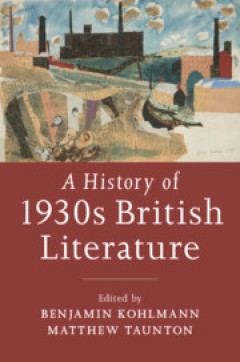
A History of 1930s British Literature
This History offers a new and comprehensive picture of 1930s British literature. The '30s have often been cast as a literary-historical anomaly, either as a 'low, dishonest decade', a doomed experiment in combining art and politics, or as a 'late modernist' afterthought to the intense period of artistic experimentation in the 1920s. By contrast, the contributors to this volume explore the conto…
- Edition
- -
- ISBN/ISSN
- 9781108565592
- Collation
- -
- Series Title
- -
- Call Number
- -

Literature and Medicine in the Nineteenth-Century Periodical Press : Blackwoo…
In the early nineteenth century, Edinburgh was the leading centre of medical education and research in Britain. It also laid claim to a thriving periodical culture, which served as a significant medium for the dissemination and exchange of medical and literary ideas throughout Britain, the colonies, and beyond. Literature and Medicine in the Nineteenth-Century Periodical Press explores the rela…
- Edition
- -
- ISBN/ISSN
- 9781474405614
- Collation
- 256 halaman
- Series Title
- Edinburgh Critical Studies in Romanticism
- Call Number
- 800 COY l
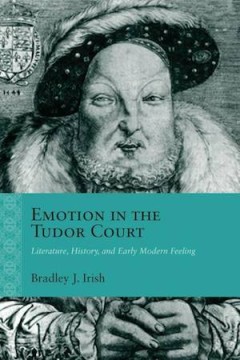
Emotion in the Tudor Court : Literature, History, and Early Modern Feeling
Uniting literary analysis, theories of emotion from the sciences and humanities, and a deeply archival account of Tudor history, Irish freshly examines how literature reflects and constructs the dynamics of emotional life in the Renaissance courtly sphere. Spanning the 16th century, this study argues that the dynamics of disgust, envy, rejection, and dread, as they are currently theorized in th…
- Edition
- -
- ISBN/ISSN
- 9780810136403
- Collation
- -
- Series Title
- Rethinking the Early Modern
- Call Number
- 800 IRI e
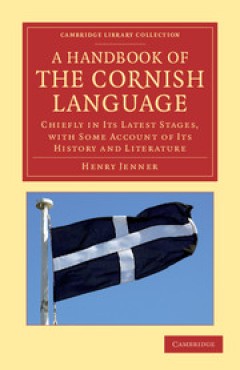
A Handbook of the Cornish Language Chiefly in its Latest Stages, with Some A…
'Why should Cornishmen learn Cornish?' asked Henry Jenner (1848–1934) in the preface to this 1904 publication, dating from the beginnings of the Cornish revival. Jenner admits that 'the reason ... is sentimental and not in the least practical'. Born in Cornwall, but raised in south-east England, Jenner worked at the British Museum from 1870 to 1909 and was elected a fellow of the Society of A…
- Edition
- -
- ISBN/ISSN
- 9781139207119
- Collation
- -
- Series Title
- Cambridge Library Collection - Linguistics
- Call Number
- -
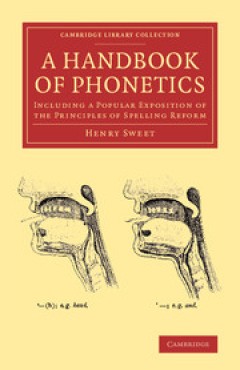
A Handbook of Phonetics Including a Popular Exposition of the Principles of …
As a phonetician and comparative philologist, Henry Sweet (1845–1912) produced work that was regarded as seminal, particularly in Germany, where he received greater academic recognition than in England. His textbooks on Old English have long been considered standard works. As well as theoretical and historical studies, he also became involved in more practical aspects of linguistics, devising…
- Edition
- -
- ISBN/ISSN
- 9781139854665
- Collation
- -
- Series Title
- Cambridge Library Collection - Linguistics
- Call Number
- -
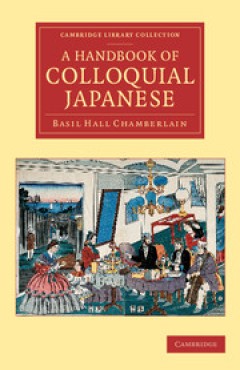
A Handbook of Colloquial Japanese
Travelling in order to recover from a nervous breakdown, Basil Hall Chamberlain (1850–1935) arrived in Yokohama, Japan, in May 1873. He was immediately fascinated by traditional Japanese culture. At the same time, the national drive for modernisation in the wake of the Meiji Restoration had created a demand for teachers of English. Chamberlain was taken on as a tutor in the Imperial Japanese …
- Edition
- -
- ISBN/ISSN
- 9781316134405
- Collation
- -
- Series Title
- -
- Call Number
- -
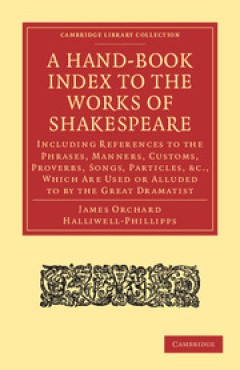
A Hand-Book Index to the Works of Shakespeare
Published in 1866, this is a meticulous, encyclopaedic listing of almost every word, place and character in Shakespeare's works. A must-have for every student of English literature, it is also an unparalleled guide for those left in the dark by Shakespearean English. James Orchard Halliwell-Phillipps (1820–1889), a renowned scholar, antiquarian, and collector of books on Shakespeare, provided…
- Edition
- -
- ISBN/ISSN
- 9780511693045
- Collation
- -
- Series Title
- Cambridge Library Collection - Literary Studies
- Call Number
- -
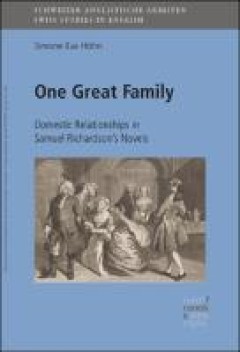
One Great Family : Domestic Relationships in Samuel Richardson’s Novels
This study examines concepts of morality and structures of domestic relationships in Samuel Richardson’s novels, situating them in the context of eighteenth-century moral writings and reader reactions. Based on a detailed analysis of Richardson’s work, this book maintains that he sought both to uphold hierarchical concepts of individual duty, and to warn of the consequences if such hierarch…
- Edition
- -
- ISBN/ISSN
- -
- Collation
- -
- Series Title
- -
- Call Number
- 420
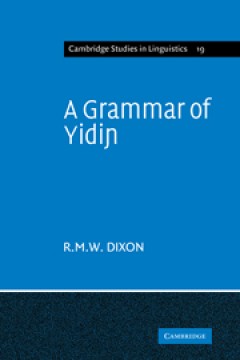
A Grammar of Yidin
Professor Dixon's book The Dyirbal Language of North Queensland (CUP 1972) is acknowledge to be a classic study. His study of Yidin is directly comparable in importance. Yidin, which is also a dying language, is Dyirbal's northerly neighbour. Yet the two languages have striking and fundamental differences in each area of grammar (while still both belonging to the Australian language family). In…
- Edition
- -
- ISBN/ISSN
- 9781139085045
- Collation
- -
- Series Title
- Cambridge Studies in Linguistics (19)
- Call Number
- -
 Computer Science, Information & General Works
Computer Science, Information & General Works  Philosophy & Psychology
Philosophy & Psychology  Religion
Religion  Social Sciences
Social Sciences  Language
Language  Pure Science
Pure Science  Applied Sciences
Applied Sciences  Art & Recreation
Art & Recreation  Literature
Literature  History & Geography
History & Geography